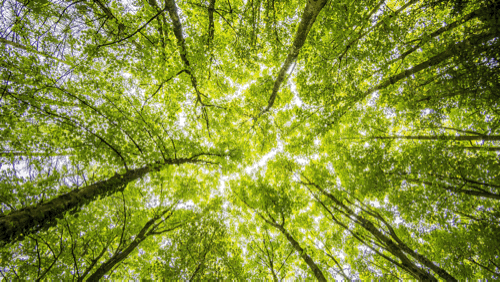
Piles of plastic in the sea covering the size of Europe and Australia combined, millions of deaths a year from breathing polluted air, megafires followed by extreme cold snaps, pandemics caused by zoonoses linked to the destruction of wild ecosystems, melting Arctic ice, extreme droughts and severe floods, plummeting biodiversity, depletion of natural resources…
So a long list of emergency lights that mother earth throws at us, we know that something must change but where to start?
Change in our industry starts from within. We cannot record an advert to say that a brand is sustainable and in the process take five planes, use kilos of plastic, and so on. The way we work must also be sustainable.
Sustainability has established itself as one of the key issues to connect with audiences. In general, companies are showing their commitment to the environment in their own business, designing more environmentally friendly products, eliminating plastic and similar materials or trying to connect with the green issues of the moment, such as the spike in interest in the circular economy.
But… what about advertising? In advertising terms, it is common for green to become the essence of the message, in one way or another. Green commitment is sold in the slogan by dropping engagement data or by betting on certain resource images such as green fields or optimistic images of the ocean.
However, at a time when the public is scrutinising everything that companies do and abruptly rejecting anything that sounds like lip service.
They want brands to be authentic in what they say and do, and that means that their advertising should tell the truth about everything they do with respect to the environment, but the production of it. In other words, you don’t have to promise sustainability or sell it, you have to make it real. If you are a sustainable company, you are sustainable at all levels.
This also applies to advertising production. Consumers don’t want ads that talk about respect for the environment and nature, but then have a brutal carbon footprint just by making them. There has to be some consistency.
Consumers are becoming more and more informed, aware, committed and determined to act in favour of the environment and against the climate crisis, and to make the necessary investments to move towards clean and responsible production for the planet instead of continuing to feed the alchemists of commercial propaganda. It is time to change production habits, not to go to the beautician for an eco-touch-up.
In this vein Wire and Plastic Products (WPP) has embarked on a strategy to become one of the first media groups to net zero carbon emissions from its media advertising.
Within the Wire and Plastic Products (WPP) supply chain, which accounts for the vast majority of the company’s emissions, the two most important sources are the production of advertising content and, more significantly, the placement of that content in media channels, from television and print to radio and online.
Companies are increasingly recognising the need to set science-based targets to achieve net zero emissions. Given that Wire and Plastic Products (WPP) and its supply chain account for a significant portion of its customers’ own carbon footprints, its commitment to net zero by 2030 “will help ensure that customers can meet their own targets,” the company says.
If this problem has already been detected, assumed and tackled for its solution by WPP, a very favourable line of action for OTTs would be to investigate the emissions of these companies and how to reduce them.
Before investing in advertising, we must dedicate time and effort to review the production processes to detect opportunities for improvement, apply them and wait for the results to see if it is enough or if we can still be more efficient, making progress, reducing the carbon footprint and contributing honestly to the fight against the climate crisis.
We know the problem well at the APCP: we are running out of time to save the planet. Let’s work together to stop the clock ticking. Taking care of our most precious location is in our hands.


